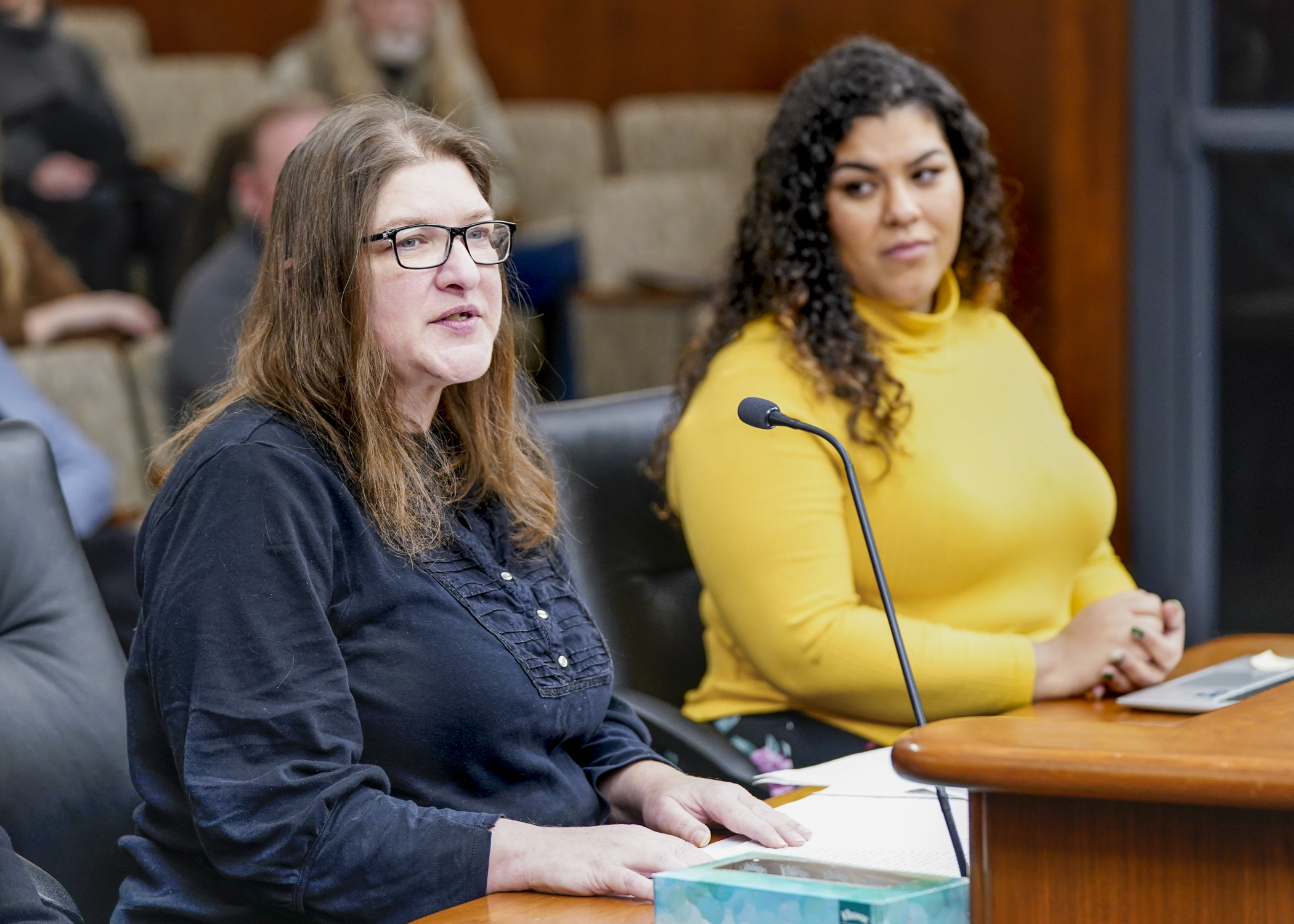One possible solution to the homeless crisis? Communities of tiny homes on holy ground

Giving chronically homeless people the chance to find healing, safety, and peace.
That is the power of a sacred settlement, according to Rep. Athena Hollins (DFL-St. Paul).
Sacred settlements are communities of tiny homes planted on land owned by houses of worship for the purpose of sheltering the unhoused. Because these settlements operate in a fuzzy area of state law, she sponsors HF1872, which would establish clear building and permitting standards for these dwellings.
The House Labor and Industry Finance and Policy Committee laid the bill over, as amended, on Tuesday for future consideration.
“As of now, the type of tiny home used for sacred settlements would fall under the recreational vehicle designation in statute because they’re built on wheels to be moved to their permanent locations,” Hollins said. “Under Minnesota law, recreational vehicles are not permitted as a permanent form of housing.”
Her bill would clarify that sacred communities composed of tiny homes are a legal form of housing and lay out requirements to qualify as such.
Effective Jan. 1, 2024, religious institutions would be authorized to build sacred communities of micro units no larger than 400 square feet to provide “permanent housing for chronically homeless persons, extremely low-income persons, and designated volunteers.”
A key element of the housing model, designated volunteers are individuals who choose to live in these communities and support previously homeless residents as they transition to stable housing. Volunteers would have to occupy between one-third and 40% of the micro units in any given sacred community.
Stipulations around utility access, sewage disposal, and building standards are detailed in the bill. Sacred communities would also be subject to the laws governing landlords and tenants.
Leah Patton, executive director of the Joint Religious Legislative Coalition, quoted Islamic, Jewish, and Christian scripture in support of the bill.
“All of our faith traditions believe shelter, safety, and care for unhoused people is what we’re commanded to do by God,” she said.
Valerie Roy has lived half her life in vans, cars, and school buses.
“Now, I live in a beautiful tiny home. I have access to the church which I can use as an extension of my tiny home. For the first time in 11 years, I have a community around me,” she said.
Supported by this community, she now has opportunities to form meaningful connections and heal from trauma. She would like to see these opportunities extended to other Minnesotans currently living in cars and tents.
The proposal is the fruit of a collaborative effort at multiple levels of government. The bill has several Republican co-sponsors and Hollins noted that her amendment addresses concerns raised by the League of Minnesota Cities.
Another amendment in the drafting stage, also requested by the league, would obligate sacred communities to undergo an annual certification with a local unit of government, to ensure compliance with the bill.
Related Articles
Search Session Daily
Advanced Search OptionsPriority Dailies
Ways and Means Committee OKs House budget resolution
By Mike Cook Total net General Fund expenditures in the 2026-27 biennium will not exceed a hair less than $66.62 billion.
That is the budget resolution approved Tuesday by the House Ways...
Total net General Fund expenditures in the 2026-27 biennium will not exceed a hair less than $66.62 billion.
That is the budget resolution approved Tuesday by the House Ways...
Minnesota's budget outlook worsens in both near, long term
By Rob Hubbard It looks as if those calling for less state spending could get their wish, judging from Thursday’s release of the February 2025 Budget and Economic Forecast.
A state su...
It looks as if those calling for less state spending could get their wish, judging from Thursday’s release of the February 2025 Budget and Economic Forecast.
A state su...